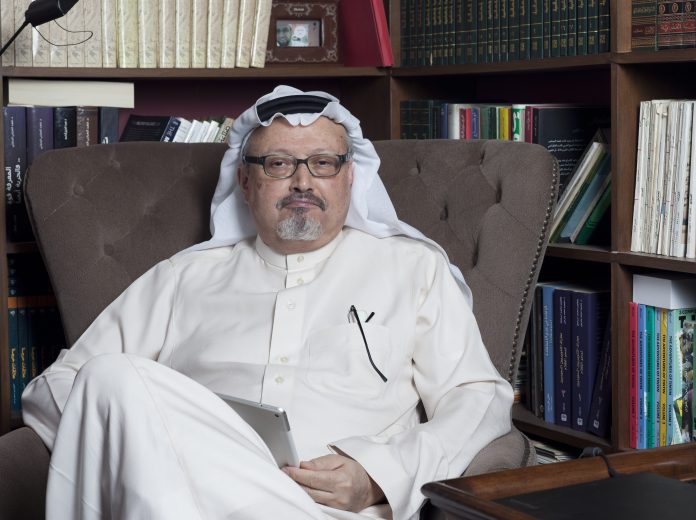Britain, France, and the United States should issue public reports on the Jamal Khashoggi murder trial: The media, UN and public are banned from trial proceedings, so who will tell the truth?
The three countries are among those that the Saudi government invited to attend the trial proceedings, which have been closed to the United Nations, the media, and the public.
Murder and trial
On 2 October 2018, Saudi journalist Jamal Khashoggi was murdered in the Saudi consulate building in Istanbul, Turkey. Mr Khashoggi was reportedly strangled moments after entering the building. His body has never been recovered. 11 alleged suspects are currently on trial before the Specialised Criminal Court in Riyadh for the murder.
Amnesty launched a campaign calling on UN Secretary General Antonio Guterres to set up an independent investigation into Jamal’s Khashoggi’s death on 2 October 2018.
The trial in Riyadh of 11 suspects charged in the murder of Khashoggi, the Saudi columnist for the Washington Post, began on January 3, 2019. Given the serious and well-documented inadequacies of the Saudi criminal justice system, Britain, France and the United States should act to ensure that they do not provide cover for what could be a sham trial, the organisations said.
Secret trial proceedings “would also run the risk of enabling the authorities in Riyadh to find a set of individuals guilty, without due process, while whitewashing the possible involvement of the highest levels of the Saudi government,” the groups said in letters to French Foreign Minister Jean-Yves Le Drian, British Foreign Secretary Jeremy Hunt, and US Secretary of State Mike Pompeo.
The groups also urged the three governments to press the Saudi leadership to allow independent observers from the UN Office of the High Commissioner for Human Rights, international human rights groups, and international media organizations to attend the proceedings.
The groups that signed the letters are Amnesty International, ARTICLE 19, the Committee to Protect Journalists, Human Rights First, Human Rights Watch, PEN America, and Reporters Without Borders.
UK arms sales to Saudi
Since the conflict in Yemen began four years ago, the UK has sold almost £5 billion of arms to Saudi Arabia, including two dozen Eurofighter Typhoons. Last year it was announced that a further 48 UK-supplied Typhoons were likely to be bought by the Kingdom.
According to the United Nations, during the past four years at least 6,800 civilians have been killed in the Yemeni conflict (with thousands more injured), the majority as a result of Saudi Arabia-led Coalition airstrikes. These airstrikes have struck hospitals, homes, weddings, crowded market places and public transport.
Amnesty has repeatedly called on the UK Government to halt arms transfers to the Coalition because of the clear risk of such arms being used in breach of human rights and international humanitarian law in Yemen.
The US has designated 16 individuals, but have not made any significant changes in their relationship with the UAE:
BREAKING: US publicly Designates 16 #Saudi Individuals In Jamal #Khashoggi murder.
Saud Al Qahtani (Fmr MBS advisor), Mutreb (Fmr bodyguard) on list pic.twitter.com/7l1TFk7S9p
— Joyce Karam (@Joyce_Karam) April 8, 2019
Whilst the Saudi government continue to endorse a legacy of paying to usurp moral violations:
Saudi Arabia gives slain journalist Khashoggi’s children “million-dollar houses” and “monthly five-figure payments” as compensation for the killing of their father, WaPo reports https://t.co/nPLxpkeRIf pic.twitter.com/HQvWt61Qus
— Al Jazeera English (@AJEnglish) April 2, 2019











